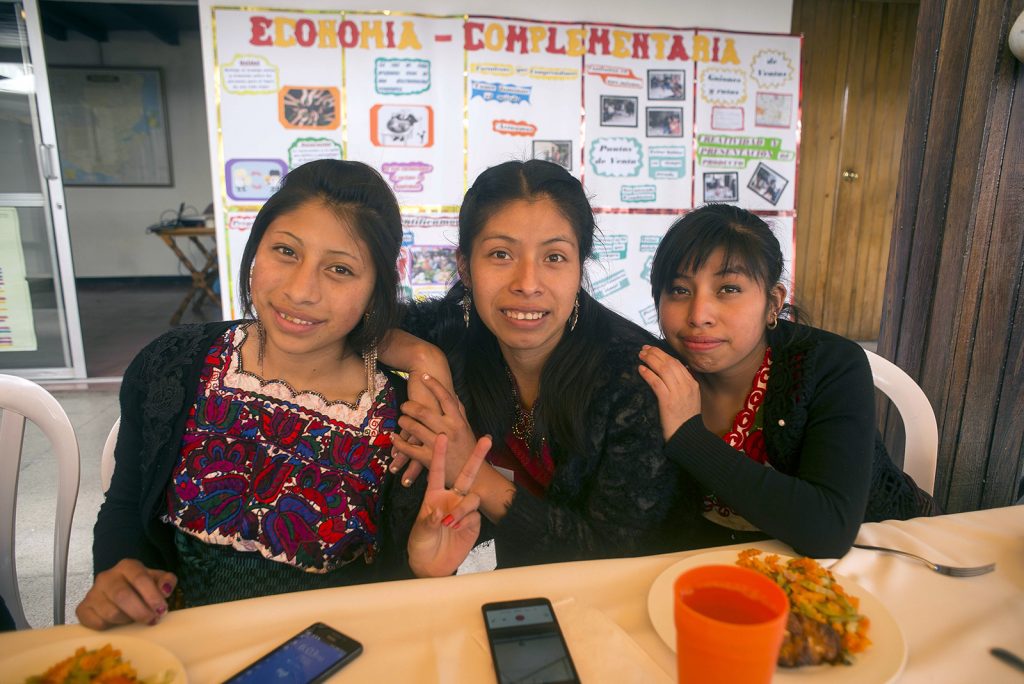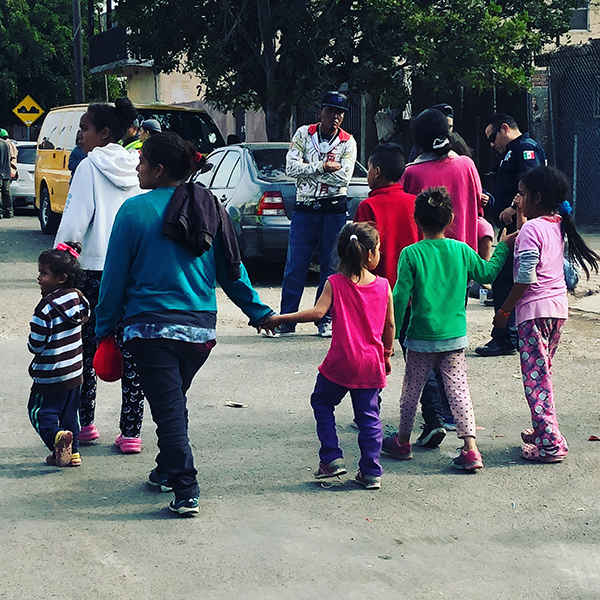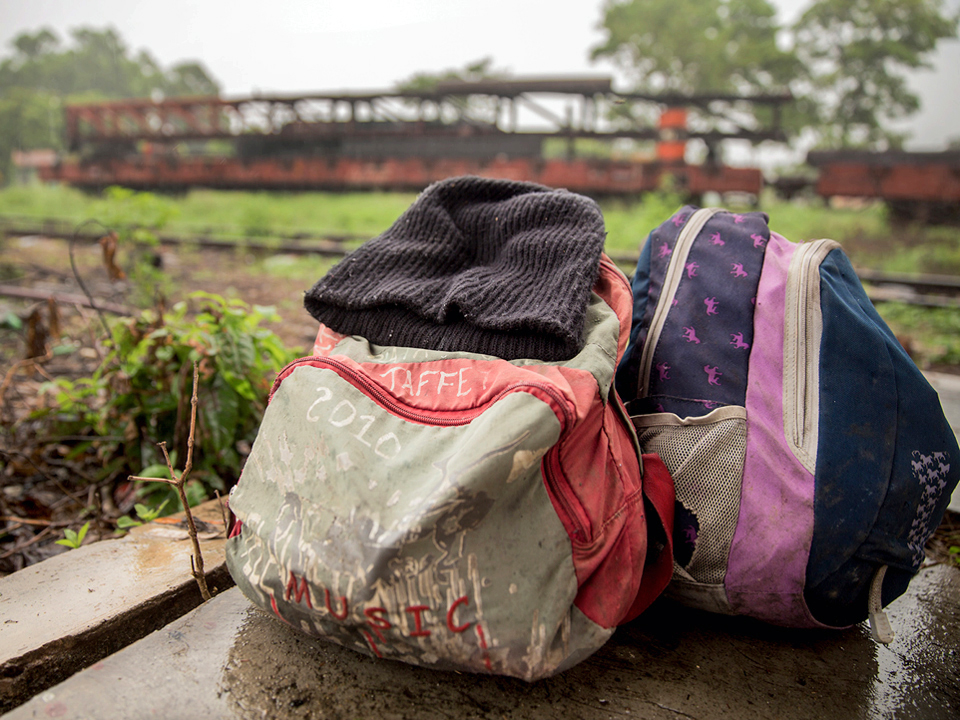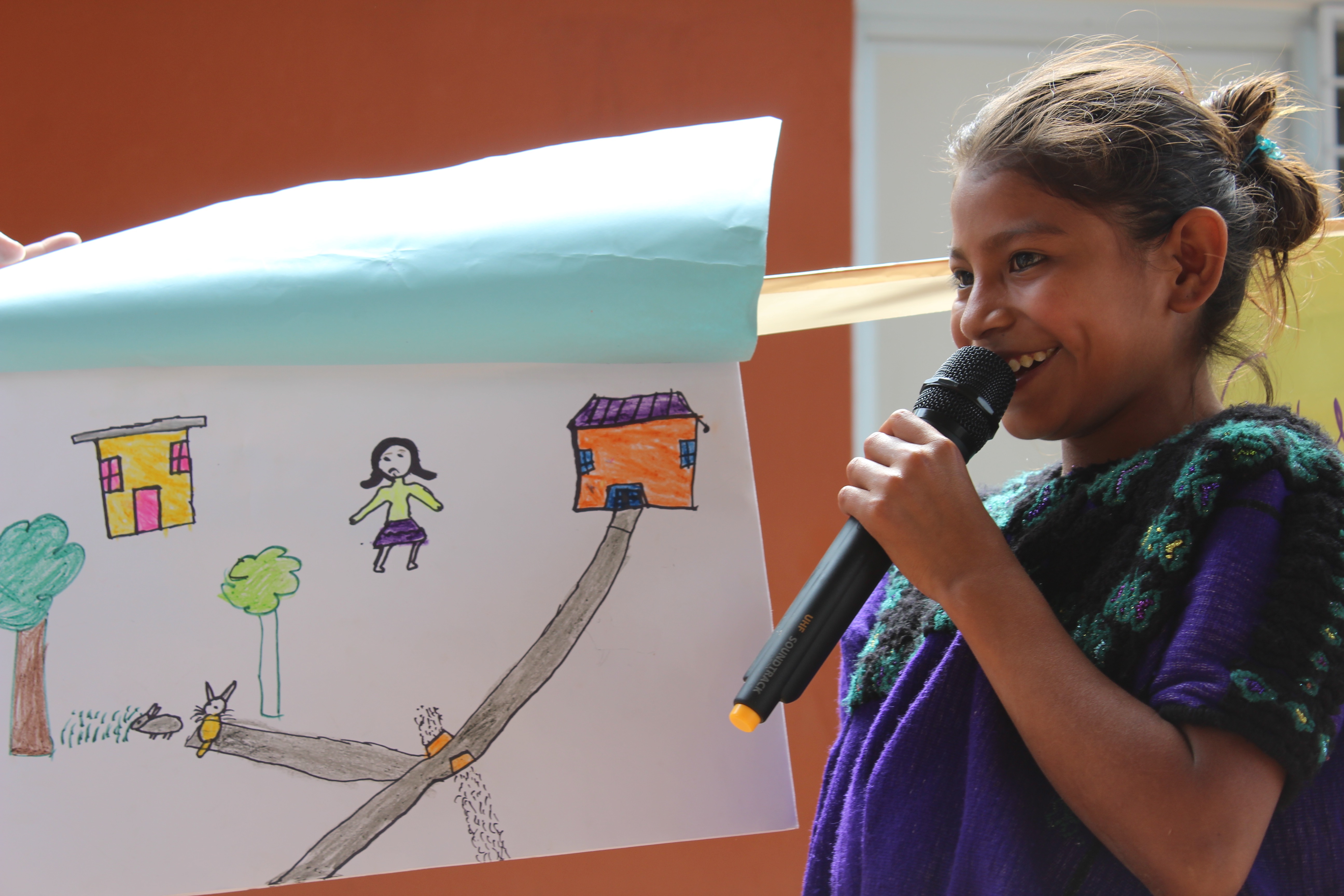Editor’s note: May 2-4, Global Fund for Children will host a second convening of more than 20 organizations working to protect migrants, refugees, and asylum seekers. The event, taking place in Quetzaltenango, Guatemala, will be co-hosted by GFC´s partner Colectivo Vida Digna, who gives an in-depth look at the importance of having a regional approach toward migration, gender, and childhood.
Q: BEFORE WE LEARN MORE ABOUT NEXT WEEK’S BIG EVENT, CAN YOU TELL US MORE ABOUT THE WORK COLECTIVO VIDA DIGNA IS DOING TO PROTECT ADOLESCENT MIGRANT GIRLS?
Colectivo Vida Digna: Vida Digna is a Mayan organization in the western highlands of Quetzaltenango, Guatemala, dedicated to affirming indigenous identities in high migration contexts. Vida Digna supports young people, women, and families from the countryside to fulfill their potential and to support the growth of their communities.
We recognize that traditionally, indigenous women suffer multiple vulnerabilities: for being indigenous, for being poor, for being women, for being young. And that forces them to migrate. Vida Digna wants to change that. And for that reason, we´ve created the Ix Kame Project.
Designed for migrant girls and young women, Vida Digna’s Ix Kame Project emphasizes the strength of Mayan women. The program strengthens participants’ capacities and creates a support circle that recognizes their culture and the importance of communication for family development.

Q: IN 2018, GFC ORGANIZED ITS FIRST CONVENING OF PARTNERS IN TAPACHULA, MEXICO, CALLED “UNITING BORDERS FOR MIGRANT GIRLS.” HOW WAS YOUR EXPERIENCE IN THIS EVENT? WHAT WERE YOUR MAIN LEARNINGS?
Colectivo Vida Digna: We learned, first of all, that migration is a very complex universe. There are multiple perspectives and approaches to migration, which often hinders our work. But we also learned that these efforts can be reconciled. It was very inspiring to know the ideas and strengths of organizations in Mexico, Guatemala, and the United States that – although very different from each other – are doing a great job to dignify the lives of migrant people all over the region.
We learned that we are not alone. And that, despite the violence, the despair, the frustration, we are changing the world step by step.
Q: WHAT THINGS IMPROVED OR CHANGED IN COLECTIVO VIDA DIGA AS A RESULT OF THE MEETING?
Colectivo Vida Digna: Our organization grew a lot by making strategic alliances with other organizations outside of Guatemala. Now, for example, we are working more closely with Al Otro Lado, an organization based in Tijuana, Mexico, and with them we are trying to create a network for the integral care of returnees and deportees. At Al Otro Lado, they support with legal assistance and guarantee a safe return, and we on the other hand take care of the challenges that have to do with the reintegration of returnees. Now we see the big picture.
We also grew by strengthening our gender perspective. We realized that it is not enough to have special projects for women, but we have to involve families and entire communities to generate fair and nonviolent relationships between men and women.
Q: AS A GFC PARTNER AND ALSO AS A CO-HOST OF THIS CONVENING, WHAT ARE YOUR EXPECTATIONS FROM THIS NEW MEETING IN GUATEMALA?
Colectivo Vida Digna: First, we want organizations to know and enjoy Xela (how Quetzaltenango is commonly known).
In our first convening in Tapachula, we looked at each other as organizations and we discovered that, despite our geographical and cultural differences, we share dreams, frustrations and strategies. Now we know that we have so much to learn from each other. For this new convening, we want to look at the adolescent migrant girls and learn how to walk and work with them. They are not just victims, but protagonists with the ability to tell their own story. They have so much to contribute for the life and work of our organizations.
In addition, we want to help build an open platform so that organizations can share their progress, challenges and experiences working with migrant girls. And from there, all participating organizations need to assume the responsibility to expand the message. To replicate and strengthen our efforts.
As a concrete result, I would like each organization to commit itself to thinking about an activity or an initiative together with another organization. We do not want the energy generated in the event to end when everyone returns home. On the contrary, we want this to be the flame that ignites new ideas and collective dreams.
Q: TELL US ABOUT QUETZALTENANGO, WHERE THE CONVENING WILL TAKE PLACE.
Colectivo Vida Digna: We are very happy that our partners can be in Xela because there is a great misunderstanding that we as organizations are sometimes responsible for generalizing: that migration only occurs at the borders. And that migrants are only those who are walking in the desert or sailing in the sea. Those who no longer have a territory. And that is not true.
Migration also has to do with territories, with identities, with belongings. We do not cease to belong because of the mere fact of leaving our community.
Xela is not close to the border. And yet, it is one of the departments with the highest migration in Guatemala. Thousands of people who leave and return without identity, without memory. Especially young people.
That is why Xela is a good place to understand that migration begins and ends in the territories. And we should not only look at vulnerable people to attend to, but places to improve, creating new opportunities and strengthening the historical memory of our people.
Q: ANY FINAL MESSAGE FOR THE ORGANIZATIONS THAT WILL ATTEND THE MEETING?
Colectivo Vida Digna: Welcome to Xela! You are our brothers and sisters now and it is a pleasure to collaborate with all of you. Please do not forget that dreaming together is a responsibility.
We are excited to have you here to continue building a path full of hope and opportunities.



